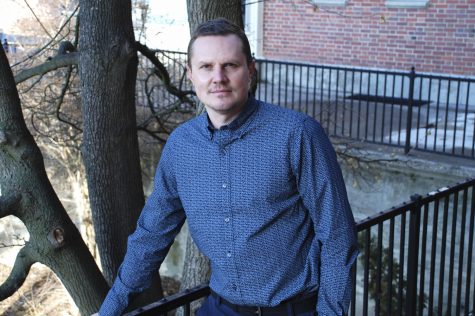Researcher works to improve STEM in Central Asia
Aral Sea major focus of climate issues in Central Asia; STEM researchers needed

STEM courses will be taught in English to help with fluency.
March 24, 2022
A WSU researcher is collaborating with Central Asian universities to strengthen their STEM curriculum.
The collaboration will involve universities in Uzbekistan and Kazakhstan with a curriculum focused on environment and climate issues in the Central Asain region. The goal is to train mathematicians and scientists to tackle these issues not only in the region but globally as well, said Sergey Lapin, professor for the Department of Mathematics and Statistics.
In Uzbekistan, some STEM disciplines will be taught in English in order to help students with language proficiency, Lapin said.
“It’s very interesting to see how things are done in different countries and also help share what we do,” he said. “Maybe they can learn from us, or maybe we can learn from them.”
The current project is a continuation from a previous grant where Lapin traveled to universities abroad, he said. He went to Urgench State University in Uzbekistan, where he gave presentations about WSU and how the STEM curriculum is taught at the university.
“The goal was to establish this kind of connection on a personal level and also between universities,” Lapin said.
USU is planning on developing STEM courses following WSU’s curriculum in English. For example, a calculus course will be taught identically to how it is taught at WSU, he said.
However, there are a few challenges. The curriculum will need professors from the U.S. or Europe with high English proficiency, which is difficult to do in the long-term with professors having their own research interests at their respective universities, Lapin said.
The university will also need to determine if the course will take place in a short period of time or a longer period of time, he said.
“What they’re trying to do is modernize the curriculum,” Lapin said. “They’re trying to bring more applied stuff in the curriculum. So they’re not only learning some mathematics and how to prove it but [how] to apply it to real-world problems.”
One environmental problem in Central Asia is the disappearance of the Aral Sea, which has shrunk by almost 80%, he said. The Aral Sea used to be a network of water channels used to irrigate cotton plants — a crop that Uzbekistan was the leading producer of — but has now become a dry and salty desert, he said.
Although STEM researchers will not be able to completely reverse the issue, they can create mathematical models and simulations in order to predict how the water supply will be affected, Lapin said.
This project is funded by the Central Asia University Partnerships Program, which is a platform to support universities in countries like Uzbekistan, Kazakhstan, Kyrgyzstan and Tajikistan, he said.
Along with continuing the collaboration with USU, Lapin said he hopes he can also work with Kostanay Regional University in Kazakhstan to strengthen their STEM curriculum and ultimately create an educational hub with USU.
“So it deals with two universities from Central Asia and one from the [U.S.] to work together,” he said. “That’s the goal.”









